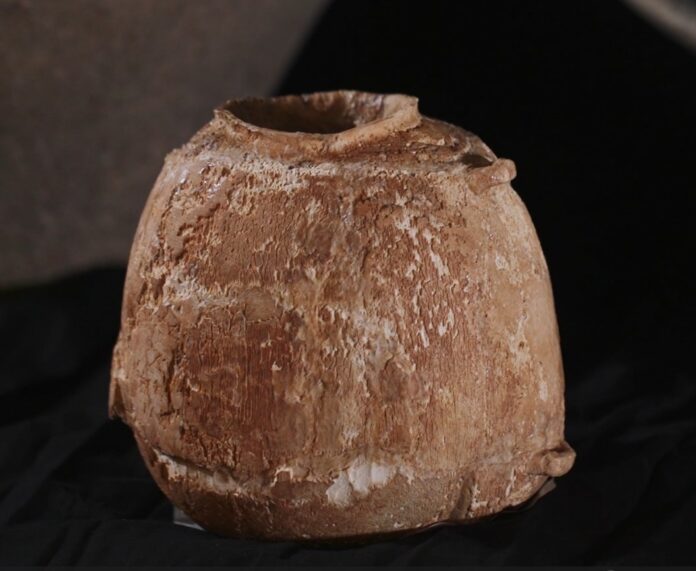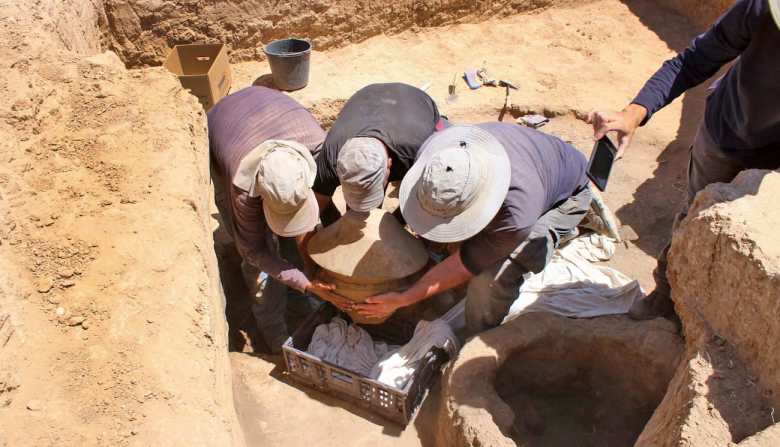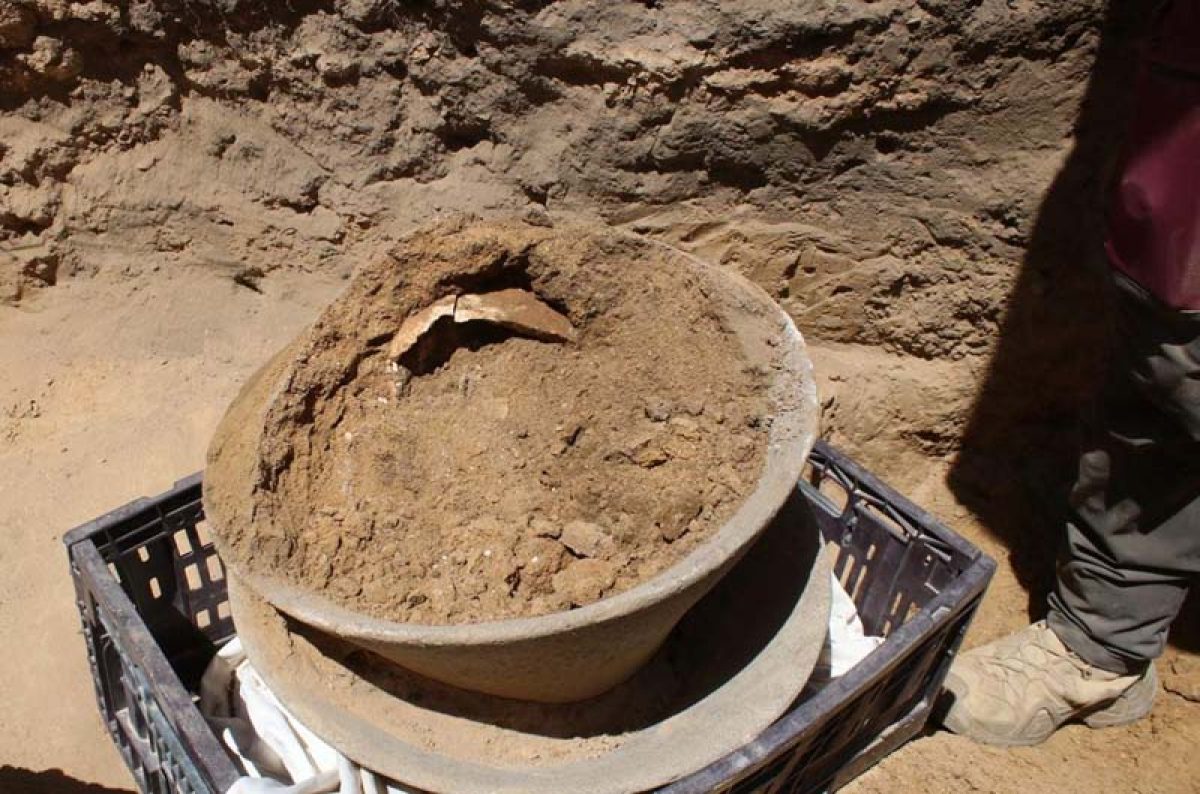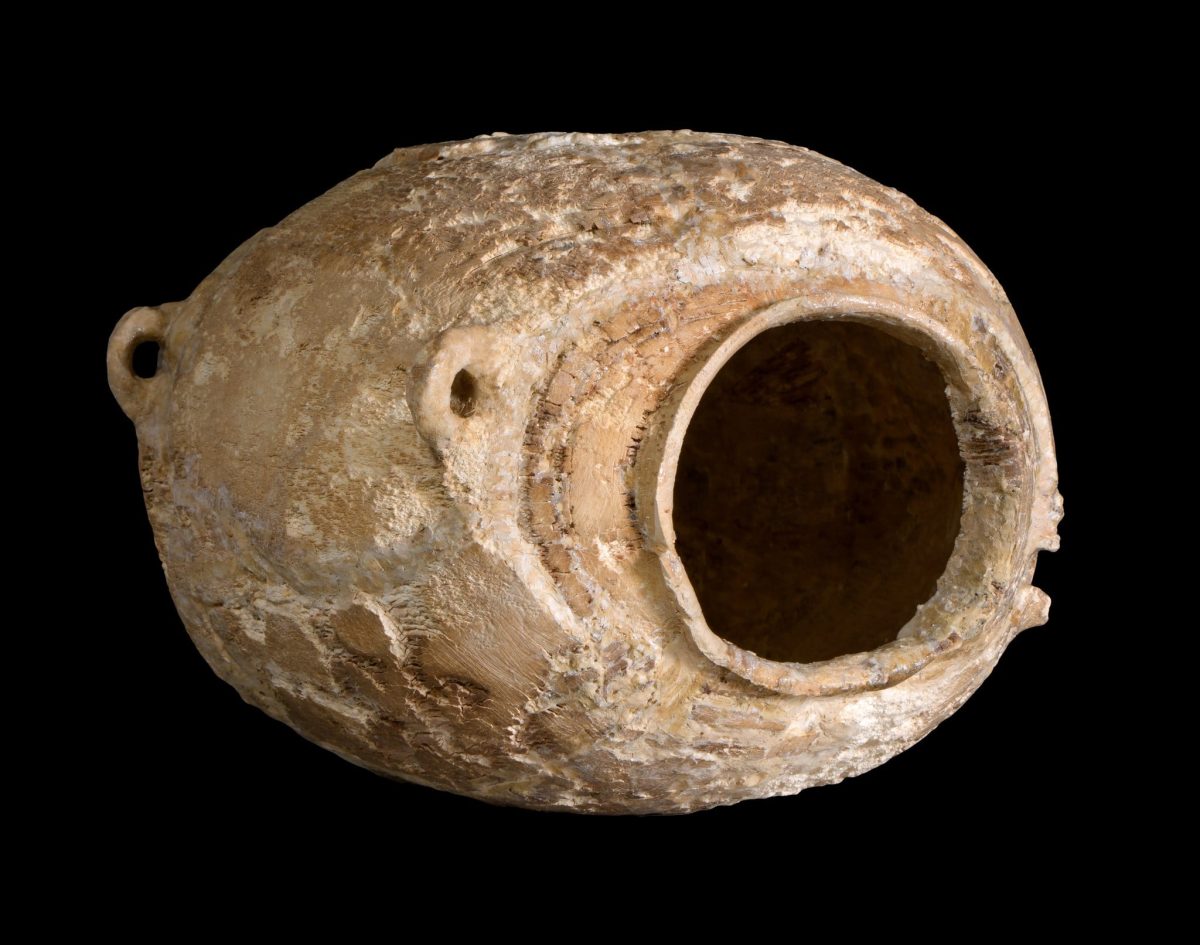In an extraordinary archaeological discovery, Israeli experts have uncovered and carefully restored a 6,000-year-old ivory vessel near Beersheba. This ancient relic, which was broken and ritually buried in ancient times, offers a captivating look into the Chalcolithic period. The restored vessel is set to be displayed at the forthcoming conference in Jerusalem.
The Discovery
Archaeologists from the Israel Antiquities Authority (IAA) have successfully reassembled the vessel, originally made from elephant ivory. It was discovered at the Horvat Raqiq site in 2020, preserved for centuries within a basalt stone container. This excavation was part of infrastructure work aimed at installing a water pipe in the region.

Chalcolithic Period Significance
Dating back to the Chalcolithic period (4500-3500 BCE), this era is characterized by notable cultural advancements, the emergence of copper smelting, and the growth of trade networks. This artifact represents the first Chalcolithic ivory vessel found in Israel, likely imported from Egypt or crafted locally from imported ivory. Known as an amphoriskos, this small jar sheds light on the sophisticated craftsmanship and cultural exchanges of that time.

Craftsmanship and Cultural Exchange
“The vessel enhances our understanding of the Chalcolithic period and the cultural exchange connections between our region and neighboring or distant cultures,” the researchers stated. The amphoriskos is intricately designed, utilizing the tusk to its fullest potential, showcasing the artisans’ remarkable skills. The find at Horvat Raqiq, an ancient settlement linked to later Nabatean culture, emphasizes the site’s historical importance.

Uncovering the Vessel
IAA photographer Emil Aladjem initially spotted the artifact during a final survey prior to the infrastructure project. The team discovered a nested arrangement of three large vessels, with pieces of the ivory vessel located inside the innermost container. The careful burial of the fragmented ivory vessel indicates its role in cultic ceremonial practices.

Restoration and Presentation
Restoring the vessel was a meticulous endeavor involving IAA researchers, experts from Hebrew University, and ivory conservation specialist Olga Negnevitsky. Dr. Ianir Milevski, former head of the IAA’s prehistoric branch, described the vessel as “stunning and exceptional in its design,” highlighting its symmetrical side handles and overall craftsmanship.

Conclusion
Now expertly restored, the 6,000-year-old ivory vessel will be unveiled to the public at the Israel Prehistoric Society conference in Jerusalem. This remarkable artifact not only exemplifies ancient craftsmanship but also offers invaluable insights into the cultural and ceremonial practices of the Chalcolithic period. The discovery stands as a testament to the rich and intricate history of human development in the region.

